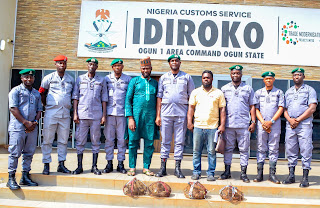The Executive Vice Chairman of the National Communication Commission (NCC), Prof. Umar Garba Danbatta, has for the very first time at a stakeholders’ meeting on broadband in Kano, revealed that Nigeria will not meet the target of 30% broadband penetration by year end.
One key factor revealed by the EVC in Kano is that Nigeria currently does not have the needed critical infrastructure to hit 30 per cent penetration as projected by the National Broadband Plan (NBP).
Danbatta failed to make any reference to the N3bn facility it has brokered with the Central Bank of Nigeria (CBN) for access by Infrastructure Companies (InfraCos) which none of them wishes to go for due to its veiled and hostile terms and conditions at a time critical infrastructure upgrade items are still part of 41 items delisted from easy access to forex.
He agreed that though the country’s Internet access is fast-growing with 160 million network subscribers and 100 million people with access to Internet connectivity in Nigeria, broadband penetration still hovers around 20 per cent and may not hit the 30 per cent mark.
However, the Commiossion had been assuring industry stakeholders that attaining effective internet connectivity and speedy network service through broadband penetration in Nigeria is achievable and on track before the end of 2018.
Though Danbatta averred that “In line with the Federal Government’s directive to ensure equitable deployment of infrastructure to attain the required level of broadband penetration in the country, NCC has engaged and issued licence to seven companies who have the capacity and technology,” he was mute on the real challenges facing Infracos and efforts of the Commission in solving them.
According to industry observers, all the seven Infrastructure Companies (InfraCos) had been having issues bordering on Right of Way (RoW) and funding to rollout services.
Though NCC had licensed all seven InfraCos to provide transmission and infrastructure required to power the internet ecosystem, none of the companies has made any known effort to deploy their infrastructure across the zones, including North-West, Lagos, North-East, North-Central, South-West, South-East and South-South.

 Agribusiness1 week ago
Agribusiness1 week ago
 News1 week ago
News1 week ago
 Football5 days ago
Football5 days ago
 Football1 week ago
Football1 week ago
 Football1 week ago
Football1 week ago
 Entertainment4 days ago
Entertainment4 days ago
 Football6 days ago
Football6 days ago
 Football6 days ago
Football6 days ago

